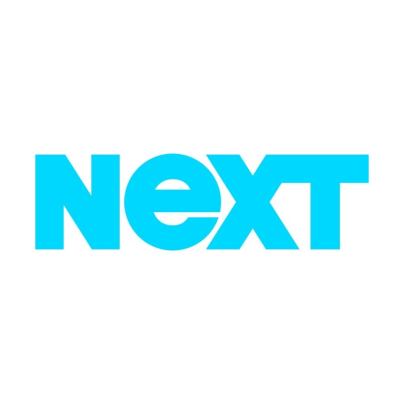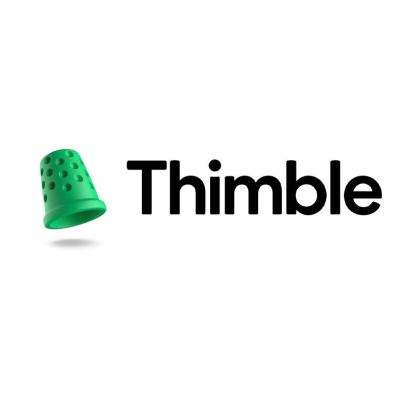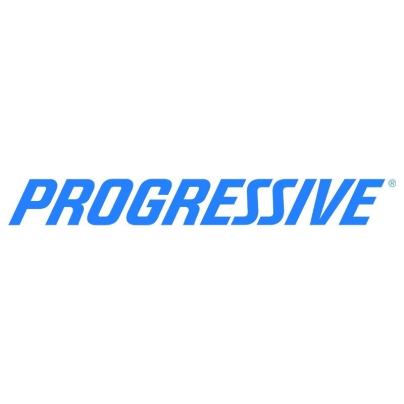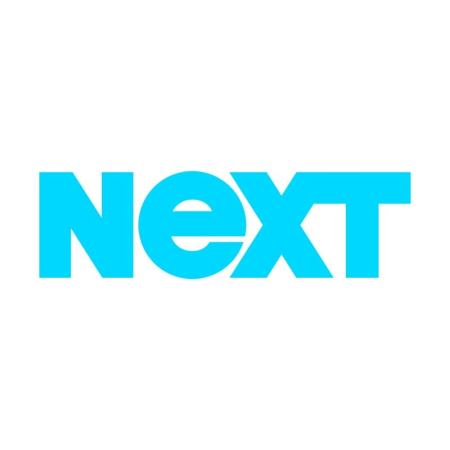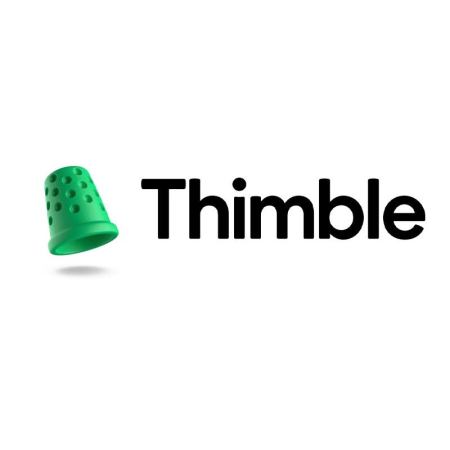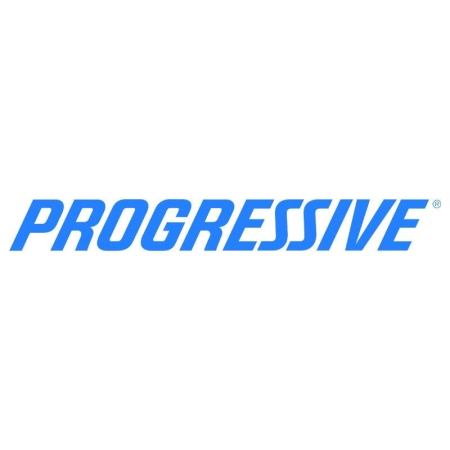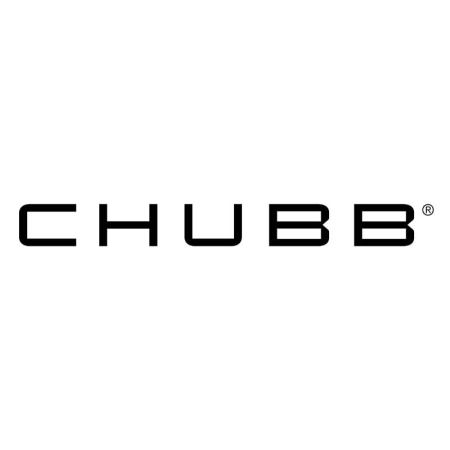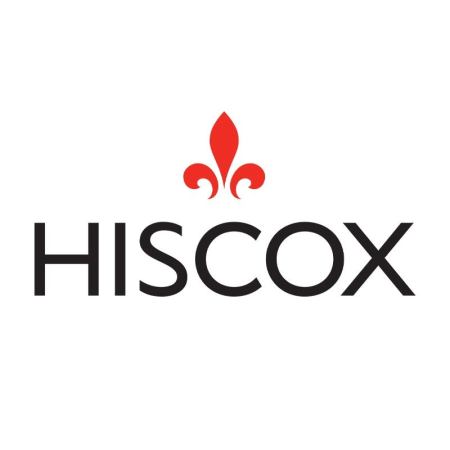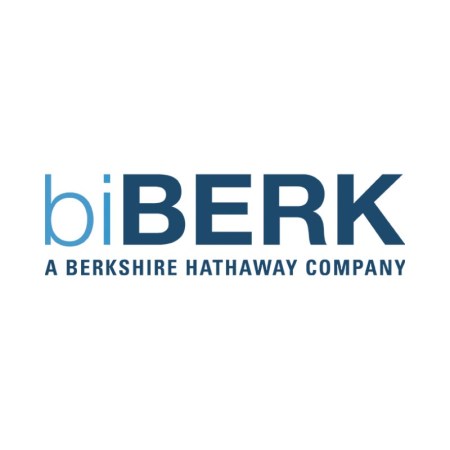
We may earn revenue from the products available on this page and participate in affiliate programs. Learn More ›
For many, the dream of owning their own business is years in the making. Building a small business from the ground up is no easy feat, which is one of the many reasons why owners want to protect their livelihood as much as possible. Adding small-business insurance to a business owner’s financial plan is one way to accomplish this. In addition, depending on the nature and location of the business, owners may be required to obtain certain types of small-business insurance coverage, such as workers’ compensation or commercial auto coverage.
Whether a small-business owner is in the early stages of planning or has years of success under their belt, it’s always the right time to work with the best small-business insurance companies to find a policy tailored to a business’s particular needs.
- BEST OVERALL: NEXT Insurance
- RUNNER-UP: Thimble Insurance
- BEST FOR AUTO COVERAGE: Progressive Commercial
- BEST ENDORSEMENTS: Chubb
- BEST FOR LOW RATES: Hiscox
- ALSO CONSIDER: biBERK

What to Consider When Choosing One of the Best Small-Business Insurance Companies
Not everyone may realize there is no such thing as a “blanket” small-business insurance policy, covering every aspect of business ownership for every situation. Instead, business owners must select a small-business insurance provider and individual coverage options that are best suited for the business needs, depending on the type and size of the business, among other considerations.
Service Area
Service area is a major factor to consider when choosing one of the best small-business insurance companies. Not every insurance company offers coverage in every state. Furthermore, an insurance company may offer some types of coverage in the state where the company is based, but it may not offer the exact endorsements the small business needs. While general liability insurance may be widely available, other specialized coverages, such as inland marine coverage, may not be offered in certain geographic areas.
Coverage Type
As business owners search for a small-business insurance provider, it’s important to remember that there is no single “blanket” policy to cover every organization. Instead, business owners choose specific coverage types based on the type of business they run and the state laws they need to follow. When choosing a small-business insurance company, keep in mind that not all will offer every type of business insurance an owner may need. Some of the coverages to choose from include:
- General liability insurance: Protects the business from bodily injury or property damage claims that occur during the course of business operations. This type of coverage may also extend to other liability concerns and damages, such as advertising injury claims filed by a competing business.
- Professional liability insurance: Also referred to as errors and omissions insurance, this coverage protects against customer claims of negligence and other mistakes committed by employees or the business owner.
- Commercial property insurance: Protects the business property (rented or purchased) and the equipment.
- Business income: Helps replace lost income in case the business can’t operate due to property damage or other covered peril (may also be called business interruption insurance).
- Business owner’s policy (BOP): Typically combines general liability and commercial property coverage in a single policy, but some companies may include other types of coverage as well.
- Workers’ compensation: Often required by state law, this coverage provides financial benefits to employees who have a work-related illness or injury.
- Commercial auto: Provides bodily injury or property damage coverage if there is an accident in a company-owned vehicle.
- Cyber liability: Protects against technology-related risks, including a data breach or other cyber event.
The Insurance Information Institute (III) lists other types of coverage that may be of interest beyond the small-business insurance basics, such as liability coverage for nonprofit directors or to protect businesses financially in the event that a key employee leaves the organization. Depending on the nature of the business, owners may also want to consider buying additional business equipment protection coverage or inland marine insurance to insure equipment that may move from one location to another. For instance, professional photographers may want this coverage to insure cameras and lighting equipment when they are going to different locations to set up photo shoots.
Coverage Amount
As with any type of insurance policy, the amount of coverage needed will depend on the type of coverage a business owner wants and the policy options that are chosen. A business owner needs to consider how much coverage is necessary and which policies offer the greatest protection, along with the budget they have for an insurance policy. If a small business only has one employee (the owner) and not much equipment to insure, the coverage amount may be quite different than what a general contractor with several employees and multiple pieces of construction equipment would need.
Naturally, more coverage selections will increase the cost of a policy, but small-business owners may be able to work with an insurance agent to ensure the right coverage amount is selected. Policyholders may also want to take note of whether their coverage amount is represented as an aggregate limit rather than per item or asset. This may be especially useful when insuring multiple pieces of equipment so business owners know how much their policy will cover if they need to file a claim on more than one item.
Business Type
The coverage options selected for small-business insurance depend on the type of services the business provides. Since a small business can be anything from a handyman company to an accounting firm, a policy will need to be tailored to offer the most appropriate coverage based on the business type and nature of the professional services provided. For example, a small medical office would likely need to include cyber liability or data breach insurance since it needs to access and store sensitive medical and personal data. On the other hand, a lawn care business may not require such extensive coverage. Business type may also influence the insurance company selection, since some insurance companies may be more experienced providing coverage to certain industries than others.
Endorsements
It’s important to consider what endorsements an insurance company offers as well. The word “endorsement” is another term for optional policy add-ons that can extend coverage. Not only do the basic coverages, such as general liability or professional liability insurance, deserve consideration, but certain endorsements may be necessary to further customize a policy.
Endorsements are especially important when a business is growing, adding services, or transitioning away from certain offerings. Working with an insurance company that can offer specialized endorsements provides necessary flexibility for a business that is changing or growing. Even if a particular endorsement isn’t needed at the time the policy is created, it could be necessary to add it on at a later time.
Quote Process
When researching small-business insurance companies, it’s also helpful to understand the quote process and whether there’s a preference for a communication type. Some companies only offer an online quote option, while others allow prospective customers to get a quote over the phone or through an agent. It’s also possible to find a company where the only option for a quote is to work with a local agent.
Business owners may want to consider which options work best for their small business, especially in regard to the complexity of their insurance requirements. If a business’s coverage needs seem relatively straightforward, then an online quote option may be suitable. However, if the business is more complicated and needs a more specialized policy, working with an agent may be a better choice.
Claims Process
The claims process is another important aspect of selecting a small-business insurance company that is worth paying attention to as a business owner. Like the quote process, some companies only offer an online option for filing business insurance claims, while others allow policyholders to submit claims online, over the phone, in person with an agent, through a mobile app, or with some combination of those options.
In addition, the response and payout time are key components. A business needs to carefully evaluate how quickly a payout occurs, since a small business may need additional funds to continue operation if there’s major damage involved that could impact revenue streams or the financial health of the business. The III notes that insurance companies may send an adjuster to inspect the damage in person when resolving a small-business insurance claim. Insurance companies that have a more digital focus may not send adjusters on-site and may instead opt for other forms of documentation to review claims.
Deductible
The deductible is the amount an insurance company deducts from a claim payout before disbursing funds to the policyholder. This is another key attribute to pay attention to since deductibles can impact both the total cost of the policy and the size of the payout that a business owner may receive on a claim. For a small business that is carefully evaluating every expense, raising the deductibles on the policy could be a way to keep expenses under control since a higher deductible will often lead to a lower premium. However, if deductibles are too high and a small-business owner has to file a claim, then they may receive a significantly lower payout than they otherwise would have received with a lower deductible.
AM Best Rating
There are numerous insurance companies available to choose from, but how is a small-business owner supposed to know which company is in a sound financial position to pay out a claim at any time? Fortunately, the AM Best credit-rating agency has taken care of the research by evaluating the financial health and creditworthiness of many insurance companies.
AM Best assigns ratings based on A+ through D. An A+ (Superior) rating means the insurance company has demonstrated a superior ability to meet its financial obligations to policyholders, whereas a D rating is considered poor. Referring to AM Best insurance ratings is an efficient way for business owners to get a snapshot of an insurance company’s financial health and long-term outlook.
Our Top Picks
When it’s time for a business owner to choose one of the best small-business insurance companies, it’s essential to weigh the strengths and weaknesses of each one. Reviewing the pros and cons of different insurance providers will aid in the selection process so business owners can choose the best one for their unique needs.
Best Overall
NEXT Insurance
Why It Made the Cut:
NEXT Insurance is focused on providing a strong customer experience for small-business owners, offering quick claim-response times and a user-friendly online enrollment process.
NEXT Insurance is available in all 50 states and Washington, D.C., and is a customer-centric company focused on providing exceptional customer service. Small-business owners looking for a seamless online experience may appreciate the company’s approach to online quotes and enrollment. The online quote tool is very easy to use and allows business owners to provide very detailed information about their business so they can select the right type of coverage and receive more accurate estimates on an insurance policy. Once they’ve received their online quote, small-business owners can finalize their coverage options and purchase a policy right away, with same-day enrollment available.
While the rates quoted by NEXT Insurance may be on the high side, depending on coverage terms selected, the company does offer a generous 10 percent bundling discount that can help lower the overall cost of coverage. Perhaps one of the company’s most notable features is its ability to respond to claims in as little as 48 hours. This responsiveness could lead to a quicker claims process overall—and as a result, policyholders may receive their funds on approved claims without delay.
Specs
- Service area: 50 states and Washington, D.C.
- Coverage amount: Up to $1 million (for general liability)
- Quote process: Online
- Claims process: Online, phone, app
- AM Best rating: A-
Pros
- Quick 48-hour claim decisions
- User-friendly and specifics-driven quote process
- Quick and streamlined online enrollment
- Relatively high and competitive 10 percent bundling discount
Cons
- Relatively high insurance premiums
Runner-Up
Thimble Insurance
Why It Made the Cut:
Thimble Insurance offers a wide range of coverage options across the entire nation, as well as a streamlined online customer experience for policyholders.
For the business owner who prefers all communication with the insurance company to take place online, Thimble Insurance is worth consideration. Thimble makes signing up for coverage as easy as possible, and depending on how straightforward the policy needs are, policies can be drawn up within minutes. Once insured, a policyholder can modify, pause, or cancel coverage at any time, which may be useful for small businesses that need to adjust their insurance coverage on short notice to meet the demands of one-off jobs or seasonal shifts in business activity.
Thimble does not currently offer commercial auto coverage, which could be a drawback for any business with a company vehicle. However, it does offer multiple coverage options, including specialty coverage such as event insurance. Policyholders can also set up insurance policies to cover their businesses for different lengths of time with both annual and monthly terms available, along with on-demand coverage options that allow for even greater flexibility.
Another unique quality of Thimble is that policyholders have free access to the Thimble Certificate Manager platform. This insurance compliance management platform offers a streamlined way to track insurance compliance needs when working with contractors and vendors by checking that all parties are properly insured for particular jobs or ongoing business needs. This is especially helpful when working with multiple vendors or contractors across various jobs.
Specs
- Service area: 50 states and Washington, D.C.
- Coverage amount: $300,000 to $1 million (for general liability)
- Quote process: Online
- Claims process: Online
- AM Best rating: A
Pros
- Flexible range of policy durations
- Policies can be modified, paused, or canceled at any time
- Quick and streamlined online enrollment
- Free insurance compliance management platform
Cons
- No commercial auto coverage
Best for Auto Coverage
Progressive Commercial
Why It Made the Cut:
Progressive offers numerous commercial auto discounts for small businesses, plus a wealth of other tools and resources for any business that manages fleet vehicles.
Progressive is known for its personal auto coverage, and that experience extends to commercial auto insurance products for small businesses, too. Plus, if a business owner happens to already have a personal auto policy with Progressive, there may be bundling discounts available that can make commercial auto coverage more affordable. Even if a business owner is not a current Progressive customer, there are a variety of commercial auto discounts available for small businesses, such as a paid-in-full discount or a loyalty discount, that can help lower the cost of coverage.
Business owners may also benefit from the fleet-management tools offered for free from Progressive, such as the Snapshot ProView platform. This program tracks and optimizes each fleet vehicle and offers reporting and safety scorecards that business owners can use to ensure employees are driving safely when operating business-owned vehicles. Geofencing tools can also help business owners keep tabs on their vehicles in the event that one is taken without approval.
While the online quote option offers a policy quote, it doesn’t allow the business owner to customize the policy without calling a service representative or working with an agent. Some business owners may prefer this approach, however, as they may be able to get a more precise quote that’s tailored to their specific business needs. There are also in-house customer representatives available 24/7 specializing in heavy-truck claims support. As such, they may be more experienced with these particular types of claims and able to process them without delay or address questions or concerns regarding a claim that is in process.
Specs
- Service area: 49 states
- Coverage amount: Up to $1 million (for general liability)
- Quote process: Online, phone, agent
- Claims process: Online, phone, agent
- AM Best rating: A+
Pros
- Wide variety of commercial auto discount opportunities
- Competitive discount bundles for personal auto and commercial auto insurance policies
- Free fleet-management tools
- 24/7 heavy-truck claims support via in-house specialists
Cons
- No online quote customization option
Best Endorsements
Chubb
Why It Made the Cut:
Chubb not only offers a variety of endorsements to customize a policy, but it also offers high coverage limits for general liability coverage.
Endorsements allow policyholders to customize their insurance plan for more tailored coverage, and Chubb offers a wide range of add-ons for small-business owners to consider. These small-business insurance endorsements include enhanced limits on business property and liability coverage, coverage for business property in transit, and employee dishonesty coverage, to name a few. There is even an automatic blanket limit enhancement available, which may be useful to a business owner with multiple business properties, since it provides one limit to cover multiple locations (versus separate coverage for each property).
Not only does Chubb offer numerous coverage options for a small-business owner, it also has one of the highest coverage limits available for general liability claims—ranging from $300,000 and up to $2 million. While the company does not offer an online quote process for all types of small businesses and the deductible options aren’t clearly listed for prospective customers, Chubb’s strong financial standing is readily apparent. The company holds an A++ rating from AM Best, which is the highest grade an insurance company can receive from the credit-rating agency, reflecting “superior” creditworthiness and a very favorable long-term outlook. Small- business owners may prefer to work with an insurance provider that has such a high AM Best rating, as it may indicate that the company has the assets to pay out claims consistently and in a timely manner.
Specs
- Service area: 50 states and Washington, D.C.
- Coverage amount: $300,000 to $2 million (for general liability)
- Quote process: Online, phone, agent
- Claims process: Online, phone, agent
- AM Best rating: A++
Pros
- High $2 million general liability coverage limit
- Wide variety of endorsements
- Automatic blanket limit enhancement available
- A++ AM Best rating
Cons
- Online quote not available for all small businesses
- Unclear deductible options
Best for Low Rates
Hiscox
Why It Made the Cut:
Hiscox offers relatively low insurance premiums for small-business insurance, and it may be ideal for business owners looking for the most competitive rates.
Business owners looking for affordable coverage may find Hiscox to be a good fit for their small-business insurance needs. While every business insurance policy varies and the cost depends on the coverage selections, Hiscox may be able to offer low rates on this type of insurance. As such, Hiscox could be worth considering for any budget-conscious business. Some of the insurance selections are not sold in every state, but Hiscox nonetheless has a relatively large service area and footprint.
Small-business owners may want to consider that Hiscox may, at times, adhere to a somewhat long claim-decision window. The company may require 10 to 20 days for claim approval or denial, which could be a concern for any policyholder who needs a quicker payout timeline. If policyholders do have questions or concerns about their policy or a particular claim, they may be able to get assistance by using the company’s responsive online chat feature, which is staffed by actual agents. Hiscox’s online enrollment process adds to the positive customer experience as well, allowing new customers to quickly sign up for coverage through the company’s website without needing to speak with an agent or answer numerous detailed questions about their business.
Specs
- Service area: 49 states and Washington, D.C.
- Coverage amount: $300,000 to $1 million (for general liability)
- Quote process: Online, phone
- Claims process: Online, phone, mail
- AM Best rating: A
Pros
- Relatively low insurance premiums
- Quick and streamlined online enrollment
- Responsive online chat staffed by live agents
Cons
- Coverage not available in every state for all small businesses
- Relatively long 10- to 20-day claim-decision window
Also Consider
biBERK
Why It Made the Cut:
With high general liability and personal property coverage limits, biBERK may be worth a look for small businesses that have more extensive coverage needs.
Part of the Berkshire Hathaway Insurance Group, biBERK specializes in small-business insurance, offering insurance options that are tailored to the needs of these types of businesses. This company stands out not only for its high general liability coverage limit of up to $2 million, but also its high business personal property coverage limit. A business owner can increase the limit past $5 million if necessary, which could be advantageous for businesses that either own or lease a wide variety of expensive equipment, tools, furniture, and appliances.
Policyholders may want to take note that coverage options can vary quite a bit from one state to another, which could cause confusion when selecting coverage terms. For instance, both general liability and BOP coverage is available in 28 states, while workers’ compensation coverage is available in 46 states. Despite the potential coverage gaps, eligible business owners may find a lot to like with biBERK. Along with the high limits for certain coverage options, the company also holds an A++ AM Best rating—a testament to biBERK’s strong financial position and reliability.
Specs
- Service area: Varies (28 states for general liability)
- Coverage amount: $300,000 to $2 million (for general liability)
- Quote process: Online, phone
- Claims process: Online, phone
- AM Best rating: A++
Pros
- High $2 million general liability coverage limit
- High business personal property coverage limit exceeding $5 million
- A++ AM Best rating
Cons
- Small 28-state coverage area for BOP and general liability insurance
- Coverage options may vary significantly from one state to another
Our Verdict
Our choice for Best Overall is NEXT Insurance on account of the company’s quick claim-decision window, quick online enrollment option, and fairly generous bundling discounts when business owners purchase different types of coverage. Thimble Insurance gets the nod for Runner-Up because of the flexibility given to policyholders to choose how long their policies run for, including on-demand and one-off options, as well as the ability to adjust policies at any time.
How We Chose the Best Small-Business Insurance Companies
Building a business is full of unique challenges, which is why it’s important to evaluate multiple insurance providers by weighing the pros and cons of each one. Service area was a major consideration when we were vetting the best small-business insurance providers, since some companies offer certain types of coverage in specific states and some companies may not offer coverage in every state. We also reviewed the coverage available from each company—both in terms of type and amount—noting where there were speciality options or higher limits available. Our research took into account the quote and claims processes supported by different companies to determine how user-friendly and streamlined each one truly was. In addition, the AM Best rating was reviewed for each provider to get better insight into the company’s financial health and standing.
Before You Choose One of the Best Small-Business Insurance Companies
Not all types of businesses are required to carry all forms of small-business insurance, which can affect how much coverage a business owner actually needs. That being said, small businesses are often required to carry workers’ compensation coverage if there is more than one employee. It also makes financial sense for an owner to want to protect their investment as much as possible, so it could be a good idea to go beyond the minimum coverage required by state or federal guidelines when selecting the best small-business insurance. Business owners who aren’t sure exactly what kind of coverage they need may want to speak to an insurance agent or representative to review their business’s coverage needs in more detail before making a decision.
It may also be worthwhile to consider the type of business that a policyholder wants to insure, as some insurance companies may specialize in certain industries. A handyman or contractor, for example, may want to seek out one of the best handyman insurance companies to get a policy that’s tailored to the unique demands of their profession.
Cost of Opting for One of the Best Small-Business Insurance Companies
Small-business insurance costs depend on a few factors. One of the major influences over cost is the type of coverage selected and the amount. Bear in mind that every endorsement and add-on will also raise the premiums for the policyholder. Larger businesses may require even more coverage with more complex endorsements, such as commercial auto or business interruption insurance, to provide the best protection from financial risk. For instance, handyman insurance costs for a one-person operation may wind up being much lower than a more comprehensive policy tailored to the needs of a general contractor with multiple employees and a large amount of expensive equipment.
Another factor influencing rates is the risk of the business type. A business with a large number of employees that takes on large projects presents a greater risk than a small business run by one person. Businesses that are more likely to deal with potentially dangerous situations—such as tree or ice removal—may face higher premiums. Pool cleaning businesses may pay more for insurance coverage compared with cleaning business insurance costs due to the higher risk of injury, for example.
The Advantages of Opting for One of the Best Small-Business Insurance Companies
Not only does the proper small-business insurance policy offer greater financial protection to the business owner, but it also provides greater peace of mind. Mistakes and accidents can happen at any time, which means there’s no better time to put a business insurance policy in place than now. Whether a business owner operates as a sole proprietor or relies on a large network of employees, there is always risk involved with running a company—and it only takes one terrible accident, injury, or mistake to put the business’s future in jeopardy due to financial loss. The best small-business insurance companies can offer many other benefits that may appeal to business owners and make their lives easier.
- Quick online enrollment and flexible coverage options allow small-business owners to adjust their coverage on the fly to meet shifting business needs.
- Generous discounts—such as bundling discounts—can help small-business owners reduce the total cost of coverage without compromising the scope of their insurance.
- High general liability coverage limits protect a business from property damage claims or bodily injury claims if an accident or injury occurs.
FAQs
Not only are there a variety of small-business insurance providers to choose from, there are also various coverage options and endorsements to fully consider, which can make finding the right policy difficult at times. Addressing some of the most common questions business owners have when going through the selection process can help clarify insurance requirements and other considerations.
Q. How do I know that I need a small-business insurance policy?
The first piece of information to verify is what kind of insurance is required by state law based on both the location and business type. Once the legal requirements are met, insurance coverage should be selected based on the business’s specific coverage needs—for instance, commercial auto coverage to insure business-owned vehicles or commercial property insurance to insure the business’s property and building.
Q. What does small-business insurance not cover?
A business owner can tailor a small-business insurance policy to cover many aspects of running a business, from errors and omissions coverage to commercial vehicle coverage. However, there are exclusions, too, such as intentional damage. It’s important to review the policy to find out the exclusions or gaps so small-business owners know exactly what their insurance covers.
Q. What are the three types of risk in insurance?
Although risk can come in many forms, three of the main types of risk in insurance include:
- Personal risk that may threaten the health or safety of an individual, such as an employee or business owner.
- Property risk, which involves damages to insured structures, buildings, and other property, such as an office, storefront, or equipment.
- Liability risk stemming from damages a policyholder may be liable to cover, which can include property damage, professional negligence, and other forms of liability.
Q. What are the four main types of business risk?
The four main types of business risk are:
- Strategic: When the business strays from its core operational plan.
- Compliance: When a business does not comply with its legal and regulatory requirements.
- Operational: When the business fails to meet its performance goals.
- Reputational: When a company’s reputation is severely damaged, the business loses customers, or the brand loyalty suffers.
Q. Which risks cannot be insured?
Some of the more common risks that typically cannot be insured include reputational risk, regulatory risk, and pandemic risk.
Q. What are the five main types of small-business insurance?
There are several types of small-business insurance to consider, but five common examples include general liability, commercial property, professional liability (also known as errors and omissions), commercial auto, and workers’ compensation insurance. Business owner’s policies are also very popular because they combine general liability and commercial policy coverage into a single policy. The U.S. Small Business Administration notes that product liability and home-based insurance are other types of small-business insurance coverage that may be useful as well.
